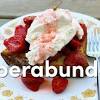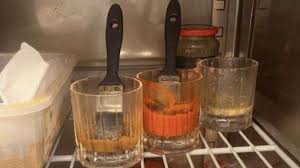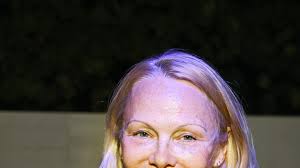'Exhilarating' experiment: Australian students send bacteria into space to make yoghurt

Home-brewed yoghurt on International Space Station may be just a small leap for a group of budding scientists
- Get our free news app; get our morning email briefing
- Follow our Australia news live blog for the latest updates

Australian high school students are sending bacteria into space in an experiment to make their own yoghurt.
In collaboration with the Swinburne University of Technology, 40 students across Victoria are participating in a program that will deliver yoghurt cultures to the International Space Station (ISS) on Tuesday, via a SpaceX rocket.
The rocket, a Falcon 9, is set to launch at 5.06am US eastern time on Tuesday – just after 9pm Australian eastern time – from the Kennedy Space Center in Florida.
A team of six students at Haileybury, an independent high school in Melbourne, are working with Swinburne researchers to study the effects of microgravity on bacteria. They hope to perfect the conditions under which astronauts could make their own yoghurt.
A total of 36 vials will be sent into space, containing frozen milk and strains of yoghurt-producing “good” bacteria, which will be defrosted by astronauts on the ISS.
Aysel Sapukotana, who has just completed year 10 at Haileybury, said it was “exhilarating” to be sending an experiment to space.
“Something that we’ve put really hard work into going to the International Space Station – this was previously something that … we could only really imagine,” she said.

The Haileybury team is sending 20 vials to study what yoghurt will be produced depending on the milk type used – either full cream cow’s milk or soy milk – and how long it ferments for – either 24, 48 or 72 hours.
Samples will return to Australia about 1.5 months after they were first sent off.
The students plan to analyse the viscosity, nutrient profile and lactic acid content of the resulting yoghurts, Sapukotana said.
A fellow Haileybury student, 16-year-old Chiara Sgroi, said a goal of the experiment was to determine “which yoghurt ended up being more nutritious, and also how that compared to the control that we did on Earth.”
“We even might get to taste it, which is pretty exciting,” Sgroi said. She noted the temperature inside the ISS, around 23C, is significantly cooler than the 37C or warmer that yoghurt is usually cultured at.
Sapukotana added: “If astronauts were to eat this and they didn’t have enough proteins and nutrients, that would be causing a bit of an issue.”
Separately, students across Victoria participating in Swinburne’s Space Youth Innovation Challenge will send another 16 other vials to the ISS, containing different combinations of milk and one or multiple bacterial strains.
The coordinator of the Swinburne Youth Space Innovation Challenge, Dr Sara Webb, said previous ISS experiments showed the behaviour of bacteria was altered by microgravity.
Webb said the students hoped to find that the yoghurt produced in space was equally nutritious as dairy products cultured on Earth. “We might see that the actual strains of bacteria fared better than on Earth,” she said, citing fewer mutations in their DNA or faster replication as examples.
“We’re hoping to be able to say: yes, not only is yoghurt viable in space – so technically you could send Joe Blow to Mars with some frozen bacteria and a pint of milk and he could make his own yoghurt – but it would be healthy.”
- Science
- Australian education
- Space
- Melbourne
- Victoria
- news


 United Kingdom
United Kingdom Argentina
Argentina  Australia
Australia  Austria
Austria  Brazil
Brazil  Canada
Canada  Germany
Germany  Ireland
Ireland  Italy
Italy  Malaysia
Malaysia  Mexico
Mexico  New Zealand
New Zealand  Poland
Poland  South Africa
South Africa  United States
United States 



























